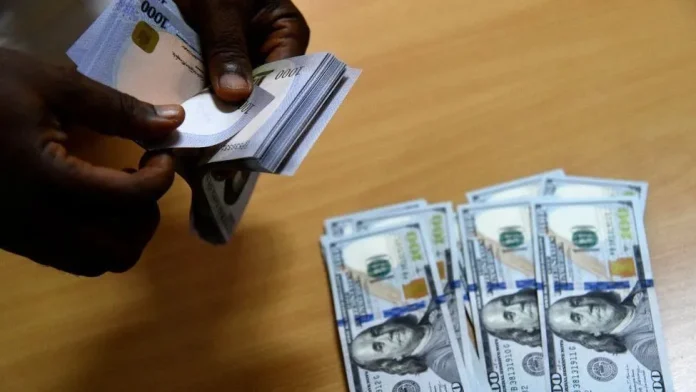In the foreign exchange (forex) market on Wednesday, the value of the Nigerian naira slightly increased as the country’s gross external reserves increased to approximately $36.77 billion.
The country’s foreign reserves balance increased to $36.769 billion on July 30 from $36.708 billion the day before, thanks to further inflows of $61 million.
Market observers also credit the Central Bank of Nigeria’s (CBN) efforts to increase FX liquidity in the market for the marginal gain. With sporadic US dollar supplies to bureau de change operators, the apex bank has resumed FX sales to banks and other authorized dealers.
The official spot rate increased by 0.76%, according to data from the FMDQ platform, and closed at ₦1,608.73 per US dollar at the Nigerian independent foreign exchange market over a slight improvement in forex liquidity.
the exchangeConversely, exchange rate worsened in the informal currency market as US dollar volume demand remained unmet by the amount readily available in the market.
dollar,The naira depreciated by 0.63%, averaging ₦1,595 per US dollar as demand for invisible payments increased further in the parallel market during the midweek.
from theFX inflows from foreign portfolio investors has decline amidst uncertainties in the local economy and heightened political risk from #Endhunger protest.
Total US dollar volume traded in the FX market (turnover) increased by +11.5%, or USD 134.8 million, to close at USD 1.3 billion on Friday. Meanwhile, the official window recorded an inflow of USD471.9 million.
The breakdown showed that foreign portfolio investors (FPIs) accounted for 9% of the amount, CBN contributed 17% to the supply side, non-bank corporates (29.5%), exporters (35.3%), and others accounted for 9.2%.
In the global commodity market, Brent crude surged by 2.33% to $80.46 per barrel, and West Texas Intermediate (WTI) crude rose by 3.26% to $77.17 per barrel on Wednesday.
The oil market rally was driven by heightened tensions in the Middle East following the assassination of Hamas leader Ismail Haniyeh in Tehran.
Iran’s vow that Israel would ‘pay a heavy price’ intensified fears of potential supply disruptions in the region, further fueling the surge in oil prices.












